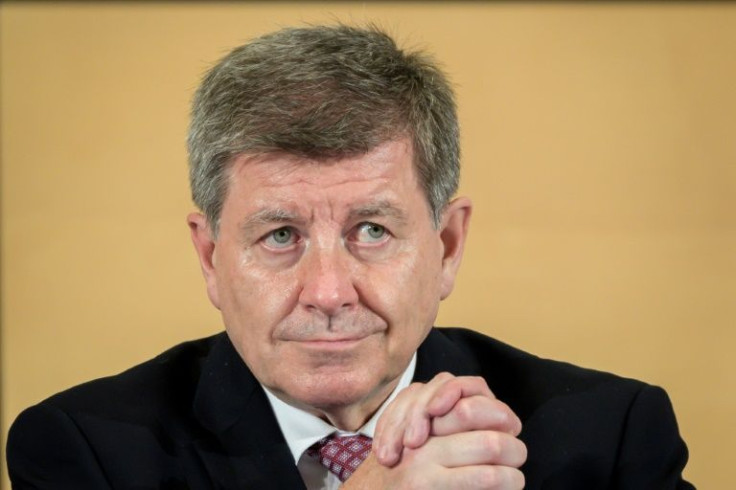Five Do Battle For Top UN Labour Job
Five candidates battling to take the helm of the United Nations' labour agency completed two days of hearings Friday where they set out their visions for the organisation's future.
Issuing promises around social dialogue, the right to strike and more diversity, the five, including three former government ministers, presented their cases for becoming the next head of the International Labour Organization.
Two women are in the running to succeed British trade unionist Guy Ryder when he completes his second five-year term, in a post only ever held by men.
"I would like to be the first female director-general of the ILO in more than 100 years," Muriel Penicaud, a former French labour minister, said during her presentation.
Founded in 1919, the ILO is the oldest specialised UN agency, with 187 member states, which are, uniquely in the UN system, represented by governments, employers and workers.
Headquartered in a vast 1960s-designed rationalist rectangular block, the ILO aims to promote rights at work, encourage good employment opportunities, enhance social protection and strengthen dialogue on work-related issues.
Besides Penicaud, the candidates are Togo's former prime minister Gilbert Houngbo, South Korea's ex-foreign minister Kang Kyung-wha, entrepreneur Mthunzi Mdwaba of South Africa, and ILO deputy Greg Vines of Australia.
Whoever wins, a change is on the cards: the ILO's 10 chiefs so far have all been men from Europe or the Americas.
Thursday and Friday's live-streamed "dialogues" with the candidates will be followed by a private round of hearings in mid-March before an election on March 25.
The new director-general will take office on October 1.
Penicaud, 66, was France's labour minister from 2017 to 2020, initiating some of President Emmanuel Macron's major social reforms, including unemployment insurance, promoting apprenticeships, gender equality and changing the labour laws.
"We are seeing the development of new forms of work which raise questions about the protection of workers, and they must be addressed," she said.

Kang was South Korea's first female foreign minister, in post from 2017 to February last year.
She does not have prior labour experience, but has highlighted her broad UN career, having served as deputy human rights chief, deputy emergency relief coordinator and senior policy advisor to the UN Secretary-General Antonio Guterres.
"I am from the outside perhaps, but I think it's time for the ILO to have some fresh input in terms of leadership," the 66-year-old said, insisting she could be an "impartial player".
Vines meanwhile has been an ILO deputy director-general since 2012. Before that, he represented Australia at the ILO and chaired the Timor Leste civil service taskforce.
"It is my driving passion that everyone should get a fair go, and the dignity that comes with a decent job," he said Friday, stressing his support for the right to strike.
Houngbo, who has the support of African countries, was the prime minister of Togo from 2008 to 2012, before spending four years as a deputy director-general at the ILO headquarters. He is currently the president of the International Fund for Agricultural Development.
Driven by a resolve for better social justice, he called for a "new global social contract", saying that "decent work remains a big dream for millions of workers".
Mdwaba runs various companies in Africa and has held several senior positions in employers' organisations.
He called himself an "entrepreneur who's had to mix things with Karl Marx".
Besides producing global labour statistics, the ILO also sets international labour standards on matters such as working hours, forced labour, domestic workers, maternity protection, night work, unemployment and workplace harassment.
The ILO convention banning the worst forms of child labour in 2020 became its first convention ever to be universally ratified.
It calls for the prohibition and elimination of child slavery, forced labour and trafficking and bans the use of children in warfare, prostitution, pornography, illegal activities such as drug trafficking, and in hazardous work.
Recently the ILO has turned its focus on work during the Covid-19 pandemic, which has triggered economic crises around the world and seen millions shift to working from home.
© Copyright AFP {{Year}}. All rights reserved.





















